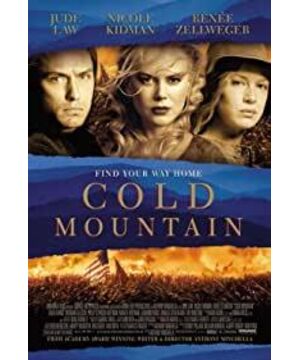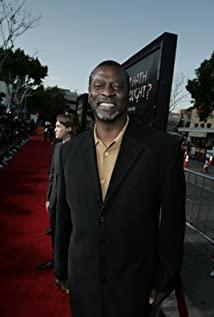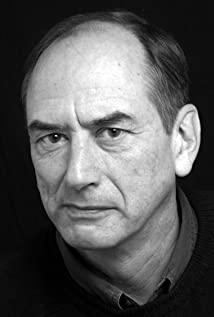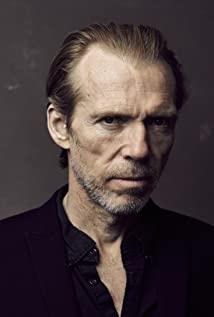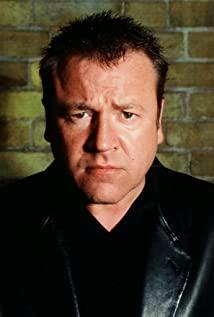Zhao Yuebin
1
Without grief and destruction, it is often impossible to make a fantastic essay. Great works are often tragic and subversive. The writer poured the grief of the world into the lines, which not only hurt the nerves of the earth, but also Let the reader (audience) feel sad and mournful. This world is too miserable and hurts constantly, but in this era of entertainment, we are more keen to create noise and more accustomed to consuming everything. Who else is willing to explore the source of tragedy, and who is willing to absorb the power of tragedy? Some sufferings are unpredictable, and some lacks can never be made up. In the face of all kinds of luck and misfortune, you can only sigh for fate. Why do people live? Is there a reason to live? Do you need a reason to live? If you had to find a reason, what would it be? I asked myself again and again, but I always fell into nothingness and couldn't find a high-sounding reason. It seemed that some personal experience could only be used as an excuse for self-comfort. So sometimes we have to think that to live is to find excuses. As long as you don’t want to give up excuses, you will definitely find a reason to live. Then, for human beings, no matter how big the differences and how serious the differences are, there may be a common excuse, and that is the love that comes from instinct, the love of life and self, and the love of others and the world. Because of love, people will not despair and can be passed on from generation to generation...
2 There
is no doubt that the novel "Live and Remember" by the former Soviet writer Valentin Rasputin (translated by Yin Xin and Hui Mei, Shanghai Translation Publishing House, May 2004 edition) is a work that sings about life and love. There are no twists and turns and bizarre plots, no thrilling scenes, just a few people, and the story is even a little monotonous. The imprints are meticulous in almost every place, real and cold, and every word is enough to move people's hearts. It's hard to imagine how tough the story would be without that kind of complicated, even a bit rambling narration. If you remove those "repetitive" plots that go over and over again, maybe the story will immediately become dull and mediocre. unbearable.
This story, which took place in the winter of 1945, progressed smoothly. The author just kept building up the unavoidable fate until the protagonist was completely overwhelmed, and he could only end his life as the final break. Nonetheless, the supporting point of the work is still "living", the desire to "live". Through Nasgiona's death, Rasputin reminds people that "life" is "remembered": no matter how heavy life is, never give up the belief in survival.
It is true that the novel is an indictment of war, but it shows the great and humble humanity. At the end of the Great Patriotic War of the Soviet Union, the wounded soldier Andrei fled from the hospital to his hometown in Siberia. He could only hide in the barren hills outside the village and survive. In order to ensure his safety and maintain his survival, his wife Nasgiona has always vowed to keep secrets, crossing the Angara River again and again, meeting him frequently, and bringing him food, shotguns, mosquito nets and other necessities of life. The novel spreads out like this. One line describes the helpless and anxious Nasgiona who is struggling on the river side, furtively providing "logistics support" for Andre; the other line describes the anxiety, lack of food Wearing Andrei waited anxiously on the other side of the river for Nasgiona to come to replenish supplies, as well as warmth and comfort. These two lines meet at different times, just like Nasgiona and Andrei, separated by a river far apart, and can only meet once in a while. However, there is no room for optimism in this stalemate. They can only wait hopelessly and passively. They can only suffer, endure and deal with it day by day. Although Andrei became like a "monster" and learned to howl, and despite Nasgiona's increasing burden, the two of them were still "in a car", as if it was precisely because of this connection The despair between them made the love between them pure and fierce, making them willing to "die together". Perhaps it is the kind of reckless love that works the most miracles, and Nasgiona, who has been infertile for many years, is pregnant. For the novel, this accident caused ups and downs in the originally flat plot, and the originally dull rhythm suddenly became tense. More importantly, for the protagonist of the story, this is a more severe test. Andre can continue to hide, Nasgiona can continue to disguise, but the bulging belly cannot be hidden, so, Their choice makes the direction of the story sway. Under such circumstances, Andre had to challenge the already precarious situation and insisted on keeping the child, because he hoped to leave a descendant. Since his own life was precarious, ensuring the birth of the child was the best outcome.
Nasgiona said: "Andrei, I don't know what to do, I don't know what to do. I've panicked."
Andrei said: "Nasgiona, it's fate, you run away You can’t escape, no matter how you go against it, it still goes its own way.” ——In
this case, I had to passively move forward with time. Although nothing happened, the truth would eventually be revealed, and Nasgiona was pushed to the most extreme. The weak edge seems to be broken with a poke, but her endurance is still amazingly strong. Her mother-in-law scolded her for looking for a wild man to make her belly big. Her father-in-law repeatedly questioned her about Andre's whereabouts. Do not hesitate to insult others, just to cover her husband Andre. However, in the end, she did not survive until the birth of the child: in order not to expose Andre, but also to "seek eternal liberation", on the way to report to Andre, she was tracked to nowhere and threw herself into the river.
Throughout the story, Andre is an escaper, a taker. "You don't pay attention to anything, just throw away everything you know, and just give birth to my baby." "But again, I remind you to remember that if you tell anyone that I have been here, I can't forgive you. I The ghosts of you will also come to settle accounts with you." These words came from Andrei's mouth, Nasgyona supported him, but did not win his trust, in order to survive, he became selfish and suspicious, taking everything for himself Center, regardless of his wife's situation. However, Nasgiona willingly and unhesitatingly accommodated and comforted Andrei, because she was afraid that her husband would lose the courage to live, she once made a wish to Andrei: "If you go to a dead end, I will never live again. ——You have to remember." The title of the novel probably stems from this, and Nasgiona is so careful to maintain Andre's self-esteem, and pinning her slim hopes on the end of the war and the birth of a child. However, she waited until the end of the war, but not until the birth of the child. As a result, Nasgiona went to a dead end, and Andrei fled.
I don’t know if the author is deliberately making various comparisons, comparing Andre’s external strength with Nasgiona’s stoic, weak love, and the war (and war) with the humble, fearful and vague love of the couple. The tyranny and inhumanity of the concept), and the ruthlessness of social laws and national norms compared with the instinct of personal survival, thus making a bitter indictment of the anti-humanity and anti-rational behavior of human beings themselves. Life is beautiful, love is beautiful, but this beauty is so fragile, sometimes the more you pursue it, the more painful it is, and sometimes you have to destroy it yourself. In the strong, rigid and cruel social mechanism, individuality and freedom are out of reach, and even the happiness of the world has been broken down into pieces. In such a severe living environment, it is already very valuable to save life. Emotional needs and inner ironing are not only difficult for the whole society, but also difficult for oneself. However, Andrei is such a man, Nasgiona is such a woman, and they have strayed from the "normal" track and become people who are not allowed by the "orthodox" of society. "Society" is so covetous and unrelenting. Just like Andre, you can run away, you can go your own way, but once you make a choice, you can only accept punishment. If you go back, you will die. If you don't go back, you will die. Since you are offside, it is impossible to reset. Therefore, in this case, the only thing that can tolerate him is the wilderness that has been forgotten by society, and for Nasgyona to tolerate him, he must also deviate from society.
However, who can cut off the dependence on the society, who can get rid of the social coercion? Through Andre, it can be clearly seen that although he wants to eat and clothe, and wants to be happy, he also learns how to bark, eats raw fish, and even steals calves. It can be seen that in such a living environment, he Becoming selfish and cruel, human nature is slowly degenerating, revealing animal wildness. At the same time, Nasgiona is trying to maintain his personality, trying to bring him back to the warmth of the world. So Nasgiona showed a maternal broad and selfless love, not only to soothe Andrei's wounds, but also to save his increasingly lost soul. In Nasgiona, there is a kind of Madonna feeling regardless of gain or loss. With a deep sense of guilt and shame, she shares on Andre's behalf - - in fact, bears - the guilt and shame of fleeing. Shame is hidden in one's own heart, one person, standing up, holding on, "does not seek justice", and "does not complain", just "puts himself aside", bears and bears without hope. So, what force makes a delicate woman dare to risk the world and hide a deserter who betrays the interests of the country? Here, of course, first of all, out of family affection, out of love, so that she can obey Andrei's warning (arrangement) without hesitation; Human dignity is the most important thing. Under such circumstances, if Nasgiona could not tolerate her husband, it would undoubtedly push Andre into a more helpless situation. Wouldn't the world be even more hopeless? Therefore, I would like to compare Nasgiona to the patron saint of the belief in human existence. Although Andrei's performance was not outstanding, and later even completely turned into a shrunken turtle that could not see the sun, Nasgiona was still willing to "tame" And obediently tacitly acquiesced to what happened." She didn't think that the suffering was imposed, but "she deserved it." She just received it, as if she came into the world to suffer.
As recorded in the New Testament, if Jesus did not go to the cross, human beings may never understand the value of life. In the novel "Live and Remember", if it were not for Nasgiona's death, perhaps we would not be able to feel the love of the great beauty and the great kindness. Nasgiona stings the living with her despair, and it is because of her despairing commitment that the living will see hope, so that people will not continue to despair - it must be remembered: when we sin, we also Some are loving us, some are taking the initiative to take the blame, and some are silently atonement!
I am a little surprised that such a work that tortures the soul of the nation and is full of humanitarian feelings will be written and published in the Soviet period (1974), and won the Soviet state prize, perhaps this is also the Russian nation. Valuable. Let's look at our literary works, how many words face history and face the soul?
3
In fact, the American movie "Cold Mountain" (Cold Mountain, the free translation should be "Cold Mountain", directed by Anthony Minghella) is also a story of desertion. War and Love - In this cliché model, it has almost all the basic elements of a commercial blockbuster: from high-impact war scenes to picturesque natural scenery, bloody carnage and thrilling , and the vicissitudes of life and sad country folk songs. Of course, more importantly, it also has a touching and even slightly sensational story: a love that crosses the barrier of life and death. In this way, from the sight, hearing, to the mind, all are mobilized, and you can go deep into the smoke of the American Civil War in the 1870s to perceive why human beings scribble history and why they live and breathe.
Some people compare "Cold Mountain" to "Odyssey", because their protagonists have also experienced the baptism of war, and they have also gone through hardships before returning to their hometowns. However, Odyssey in "Homer" is a triumphant hero, and Inman in "Cold Mountain" is a little deserter tired of war and longing for love. From this point of view, he The situation is very similar to Andre in "Live and Remember". In the movie, Inman obeyed the call of love and resolutely embarked on the long journey back to Cold Mountain. The story unfolds between Inman's return journey and Ada's thoughts, focusing on the long and difficult reunion process of the two. , while narrating the process of Inman's difficult return to his hometown, while echoing his lover Ada's toughness in coping with the plight of life in his hometown. The distance of love is narrowed from near to far, and from far to near, and the essence of love is also interpreted unforgettable. However, when they broke through the difficulties and obstacles and came together, Inman eventually fell under the gun of the "Self-Defense Forces" chasing and killing the "deserters". Compared with the novel "Live and Remember", the film "Cold Mountain" is more conflicted and dramatic, and the hero and heroine also have distinct personalities. They dare to love and hate, dare to resist, and dare to pursue their own happiness. Although both have tragic endings, the tone of the film "Cold Mountain" is undoubtedly brighter, and even its blunt ending (Inman left a posthumous child, and those who survived live happily) are trying to create a beautiful mirror image . The reason for this is that, in addition to the film itself meeting the needs of the audience, it is probably also related to the New World spirit of the United States. If you want to oppose war, you must oppose war with great fanfare. No matter whether the harvest of the war is the southern army or the northern army, if you want to sing love, you will be hoarse. Sing of love, whether that love is appropriate or not. Therefore, in the film, not only the protagonist's tenacious resistance and vitality are shown, but also the "majority" who remain kind and optimistic despite the torment of the war are not ignored. It is with the care of many people that Inman and Ada's love will not fall into helpless despair.
Compared with "Cold Mountain", "Live and Remember" is undoubtedly bleak. Perhaps this has something to do with the focus of the story in the novel. Just imagine whether Inman will be like Andre after he sneaks back to his hometown. What about a day without a start? Will pregnant Ada suffer from the same misery as Nasgyona? If you look at the two works together, they are more like a complete multinational drama. The interpretation of "Cold Mountain" is the ups and downs of the first half, and the interception of "Live and Remember" is more psychological. Tension in the second half. "Cold Mountain" uses force (violent) conflict as a foil for people's favorite love, and "Live and Remember" shows human's survival instinct with unspoken psychological conflict. In contrast to the war, relatively speaking, the novel "Live and Remember" is more thought-provoking, because it reveals the more hidden anxieties and shortcomings of human beings.
However, I still look at "Cold Mountain" with pity. I am willing to be moved by the straightforward and persistent love. I cherish the spirit that never despairs easily, and I must also fill my heart with enthusiasm. Because of this, it was the first time that I had the desire to read the original book because of watching a movie, so I hesitated and bought a novel version of "Cold Mountain" ([US] Charles Fraser, translated by Zhou Yujun and Pan Yuan, Relay Press, May 2004 edition), although some people say it is a second- or third-rate work, I still believe it is worth reading.
4
In general, the "deserter" is always shameful, even if his reasons are good. Whether it is survival or courtship, in the context of war and country, where is there any room for self-selection? Therefore, according to conventional judgments, Andre, Inman, Nasgiona, and Ada are definitely the ones who have gone to the end. They have all turned their backs on the interests of the country and everyone, and are held in the nose by trivial personal gains and losses. Fortunately, human beings have not forgotten that they are first of all "people", and we have not forgotten to use human eyes to examine those who do not follow the rules. Writers like Rasputin and Fraser saw from deserters the basic power that has been generally ignored by human beings, that is, the power to refuse to kill, and more importantly, the power to refuse to be killed.
Survival is a human instinct, self-preservation is a human instinct, and when life is threatened, it is also a human instinct to escape. So, is war, killing, and attacking also human instincts? I think that human beings in the barbaric period may need this instinct, but with the improvement of civilization, the most basic needs of current human beings should be to improve themselves and reach a general understanding and balance. However, human beings have not stopped hating each other and killing each other. Local wars and terrorist attacks are still creating bloody scenes in the name of their own sacredness. In the bloody infestation, both sides of the enemy will have their own "heroes", and there may also be "deserts" on both sides who are afraid of death. If both sides produce a large number of "deserters", will the violent conflict be buffered or even resolved? Of course, compared with national interests and national dignity, this kind of thinking is naive. Once a war breaks out, citizens must fight for their obligations. This is a common practice followed by all mankind. You can only follow orders and have no choice.
According to the US "Newsweek" report, during the Gulf War, Saddam cut off the ears of 3,500 people in order to punish deserters who were "unwilling to invade Kuwait". This "ear cutting campaign" lasted for three days, from May 17 to 19, 1994, and spread across all cities in Iraq. The deserters left a mark of shame. Even if they were "amnesty" four years later, they could not find a job or a wife because of this. They could only carry this "ear pain" with them for a lifetime.
There are deserters on this side, and there are deserters on the other side. Since the U.S.-Iran war began in 2003, there have been many reports in the media that U.S. officers and soldiers did not return to the team after taking vacations, or left their posts without permission, and some even took off their military uniforms and put on Arab robes as deserters. According to reports, the total number of deserters of the US military in Iraq has exceeded 5,000. Among these deserters, two more "outrageous" escapees appeared, one is 18-year-old Brandon Huey, and the other is 25-year-old Jeremy, who not only escaped from the upcoming battlefield troops, but also seeking asylum in Canada, and even made a statement, publicly accusing the Bush administration of violating international law in the Iraq war in front of the media. Brandon Huey said: "This (Iraq war) is a war based entirely on lies. If you don't want to go to this war, I think (fleeing to) Canada can also be an option." Jerry "I think it is against international law to start a war in Iraq, because there is no evidence that Iraq has weapons of mass destruction. I will not be involved in this war," Mize said.
Perhaps this is the dignity of deserters. Whether the Iraqi deserters who lost their ears or the American deserters who lost their motherland, they have lost a lot, but they have not lost their dignity. You can call him a coward and traitor, but you can't call him without a conscience, without humanity, or without a broad and broad love.
But who would give deserters the dignity they deserve? For deserters who are afraid of death, it seems that no matter what to do with them. Take the United States as an example, according to military law, fleeing the battlefield during wartime is usually a crime plus one, and in serious cases, it may be sentenced to capital punishment. A US military court recently sentenced Camilo Mejia, a US Army sergeant who allegedly disappeared for "anti-war" motives, to a year in prison for AWOL. Public opinion in the United States generally believes that once the war is over, the tough American military will definitely settle accounts with these deserters, and the two soldiers who have fled to Canada will bear the brunt. However, after all, human beings are advancing, and people's attitude towards "deserters" is also more tolerant than before. In the movie "Cold Mountain", isn't the deserter Inman portrayed as a positive "hero" image? In contrast to the United States of America a hundred and thirty years ago, and the Soviet Socialist Republics sixty years ago, Mejia in 2004 did not die at the gunpoint of her countrymen like Inman, Huey and Jay. Remy did not become a savage like Andre, at least their lives were not arbitrarily deprived, and Jeremy could still be reunited with his wife and son in a foreign country.
On June 29, 1998, Clinton gave a speech at Peking University, quoting a passage from Mr. Hu Shi: "Now someone is saying to you: 'Sacrifice your personal freedom and seek the freedom of the country!' I say to you: 'Fight for your personal freedom' If you want to be free, you are fighting for freedom for the country! Fighting for your personal personality is fighting for the country’s personality!” (“Introducing My Own Thoughts”) Of course, the American president who pulled the former president of Peking University out of Peking University was not purely a student of Peking University. The set is almost, probably the ultimate purpose is to praise himself and sell his idea of freedom. However, we can use this sentence to understand the American deserters. Hu Shi also said: "A free and equal country cannot be built by a group of slaves!" Or you can ask Clinton whether Mejia and Jeremy are fighting for the country. Freedom, is it fighting for personality for the country? Are they trying not to be "minions"? Although this kind of struggle may be judged as "individual" and illegal, but the gunshots from Cosington sounded, it was "violation" that created a hurricane and rushing nation, and it was precisely because of the constant escape, Only when the "individual" wins can its national character be improved, and the citizen's spirit of freedom can be sublimated. It is precisely because of this cultural background that there are "brave" deserters.
Will humanity ever end the strife for good? In the face of this pessimistic issue, we have to look forward to it. In that speech, Clinton once proposed that "the freedom of the mind must be enjoyed", and Hu Shi also said, "The 'freedom' we are talking about now is not that kind of inner state, and the 'freedom' we are talking about now is not The right to be restrained and oppressed by external forces is the right to live without the constraints of external forces in a certain aspect.” (“Liberalism”) The so-called inner and outer forces should complement each other, so Hu Shi has repeatedly pointed out: “Tolerance is better than tolerance. Freedom is more important", "Tolerance is the foundation of all freedom", not only individuals should have the "freedom of bold doubt", but society should also have "tolerance" towards dissidents. ("Tolerance and Freedom") Therefore, we can also think that "deserters" also have the right to pursue freedom, at least the right to protect their own lives, or go further: a person should have the freedom to choose whether to fight or not to fight. There is the freedom to judge social ethics and collective will, and then the freedom to be neutral or even evasive.
5
At this point, I finally approached the excuse I was looking for: to be a neutral person, to live freely in the world with tolerance and love. At this time, two sentences quoted by Fraser on the title page of "Cold Mountain" also appeared mysterious:
"It's hard to believe that in the quiet woods and smiling fields, creatures are silently fighting terrifying wars."
"People ask about the road to Hanshan, but the road to Hanshan is blocked."
One sentence comes from Darwin, a British evolutionist, and one comes from Han Shan, a Chinese poet and monk in the Tang Dynasty. . Through the two sages of the East and the West, Fraser is nothing more than solving the problem of his novel: terrible wars are everywhere, but the cold mountains in the poetic realm are almost impossible to follow. It is frustrating to want to go like this, however, I am still willing to live and love with fantasy and gratitude...
August 17-23, 2004 First draft
revised June 4, 2005
View more about Cold Mountain reviews


